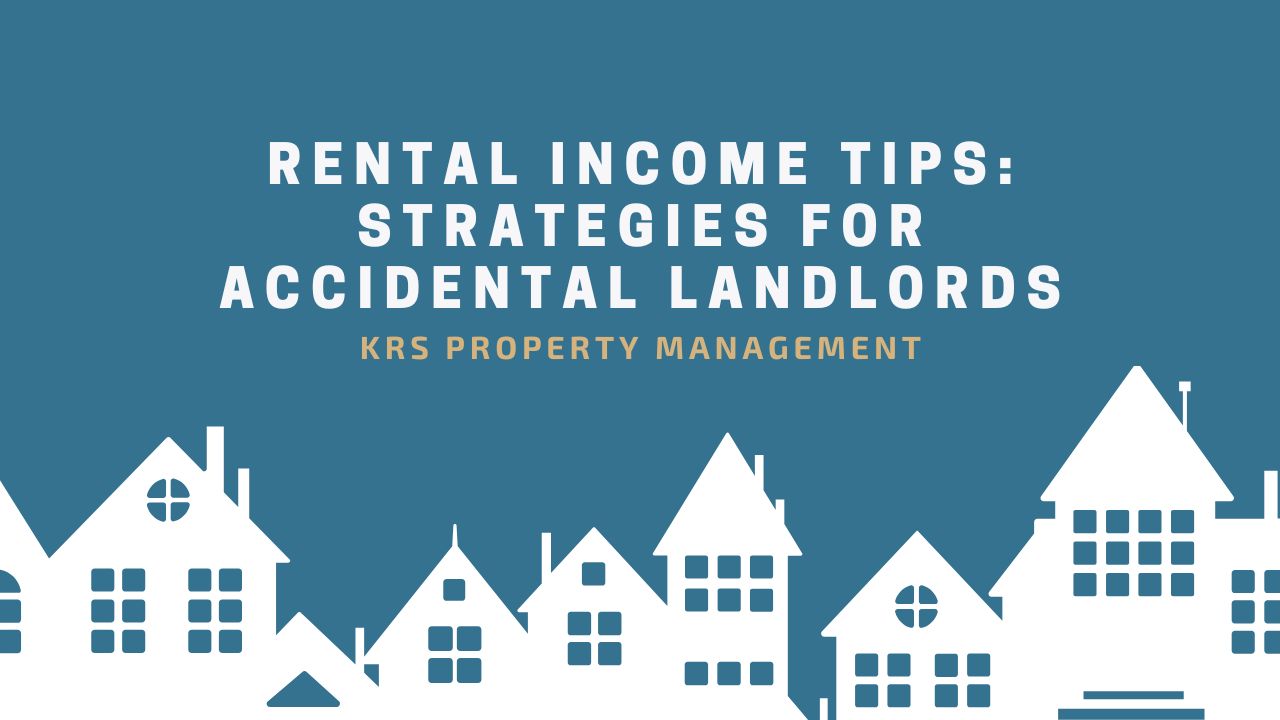
Key Takeaways
Treat Your Rental Like a Business: Accidental landlords should understand their responsibilities, follow Virginia’s landlord-tenant laws, and make decisions that protect long-term income.
Maximize Income With Smart Strategies: Setting the right rent, screening tenants carefully, and reducing vacancies are essential to keeping cash flow steady.
Protect Your Investment: Stay on top of maintenance, track finances and taxes, and lean on professional property management to save time, reduce risk, and boost returns.
Becoming a landlord is often a deliberate investment decision, but for many people it happens unexpectedly. You may inherit a family home, relocate for work and decide to rent instead of sell, or marry someone who owns a second property.
Whatever the circumstances, finding yourself with a rental property you never planned for can feel overwhelming. These “accidental landlords” face unique challenges (e.g., learning about leasing, tenant laws, maintenance, and finances) often while juggling other responsibilities.
If this describes your situation, the good news is that with the right approach, your unexpected rental property can become a reliable source of income and long-term wealth.
Here are the best tips from KRS Holdings, to maximize rental income, avoid common mistakes, and build stability as an accidental landlord:
Tip #1: Understand Your Role as a Landlord
The first step is acknowledging that rental property ownership is a business, not just an extension of homeownership. A house that was once simply your residence now represents an asset that generates income, carries risks, and requires professional oversight.
As a landlord, you are responsible for complying with Virginia landlord-tenant laws, maintaining the property, setting competitive rents, and managing residents.
Treating the property like a business investment will help you make decisions that improve cash flow and protect your long-term financial position.
Tip #3: Set the Right Rental Price
One of the most common mistakes accidental landlords make is guessing what rent should be. Some owners set the price based only on their mortgage payment, while others charge too little out of fear of scaring away renters.

Both approaches can lead to problems. To maximize income and reduce vacancies, you need to understand the rental market in your area.
In Richmond, for example, rents vary significantly by neighborhood, with downtown properties commanding higher rates than suburban homes. The same is true in Hampton Roads, where proximity to military bases and universities can influence demand.
Conducting a market analysis helps you determine a fair rent that covers your expenses while remaining attractive to prospective tenants. Accurately priced homes also tend to lease faster, reducing costly vacancies.
Tip #3: Screen Tenants Carefully
Another critical step in protecting rental income is thorough tenant screening. Choosing a tenant quickly just to fill the vacancy can lead to unpaid rent, property damage, and costly evictions.
Instead, take time to review applications, check credit histories, verify employment, and call prior landlords. In Virginia, landlords must follow Fair Housing laws, but they are still entitled to select tenants based on financial stability and rental history.
The effort you put into screening upfront helps ensure that you have reliable tenants who will pay on time and take care of the property. For accidental landlords with busy schedules, professional screening services or working with a property manager can save time and reduce stress.
Tip #4: Stay on Top of Maintenance
Maintenance is more than just fixing things when they break. A well-maintained property retains value, keeps tenants satisfied, and avoids larger repair bills down the road.

Many accidental landlords underestimate the cost of upkeep, only to face surprise expenses that wipe out rental profits. Routine inspections can help identify small problems before they escalate.
For instance, addressing a minor roof leak promptly prevents costly water damage later. Similarly, seasonal tasks like cleaning gutters, servicing HVAC systems, and winterizing plumbing can prevent emergencies.
In Virginia’s varied climate proactive maintenance is especially important. A preventive approach not only protects your asset but also shows tenants that you care about their living conditions, which encourages them to renew leases.
Tip #5: Manage Finances and Taxes
Rental income is taxable, but many landlords miss out on valuable deductions that can lower their tax bill. Expenses such as repairs, property management fees, mortgage interest, insurance, and even depreciation may be deductible.
Keeping organized records is key to maximizing these benefits. Accidental landlords often mix rental income with personal finances, which can create confusion.
Opening a separate bank account for the property allows you to track income and expenses clearly. In addition, consulting with a tax professional familiar with Virginia’s real estate market ensures you remain compliant while taking advantage of all allowable deductions.
Tip #6: Reduce Vacancy and Turnover
Every month your property sits vacant and money is lost. Reducing vacancy is one of the most powerful ways to boost rental income.

This starts with setting a fair rent but also involves marketing effectively, presenting the property well, and providing a positive rental experience that encourages tenants to stay.
Simple steps such as professional photos, online listings, and quick responses to inquiries can shorten the time it takes to secure a tenant. Once you have good tenants in place, keeping them satisfied with prompt maintenance and clear communication reduces turnover.
In Virginia’s competitive rental markets, tenants often have options. Creating a rental experience that stands out increases the likelihood of lease renewals, which provides consistent income with fewer expenses.
Tip #7: Stay on Top of Legal Compliance and Risk Management
Accidental landlords may not be familiar with all the legal requirements that apply to rental properties. However, failing to comply with Virginia’s landlord-tenant laws can result in penalties, lawsuits, or tenant disputes.
Landlords and active investors must understand rules around security deposits, notice periods, lease agreements, and eviction procedures. They also need to provide safe housing that meets health and safety codes. Keeping accurate documentation protects you if disputes arise.
Final Thoughts
Being an accidental landlord may not have been part of your original plan, but it doesn’t have to be a stressful or unprofitable experience.
By understanding your responsibilities, setting the right rent, screening tenants, maintaining the property, and managing finances carefully, you can turn your rental into a steady source of income.
Think of property management as an investment in your success. Every decision you make today will impact your income and your property’s long-term value.
If you own rental property in Richmond, Norfolk, or across Virginia and want to maximize your investment without the daily stress, KRS Holdings is here to help.






